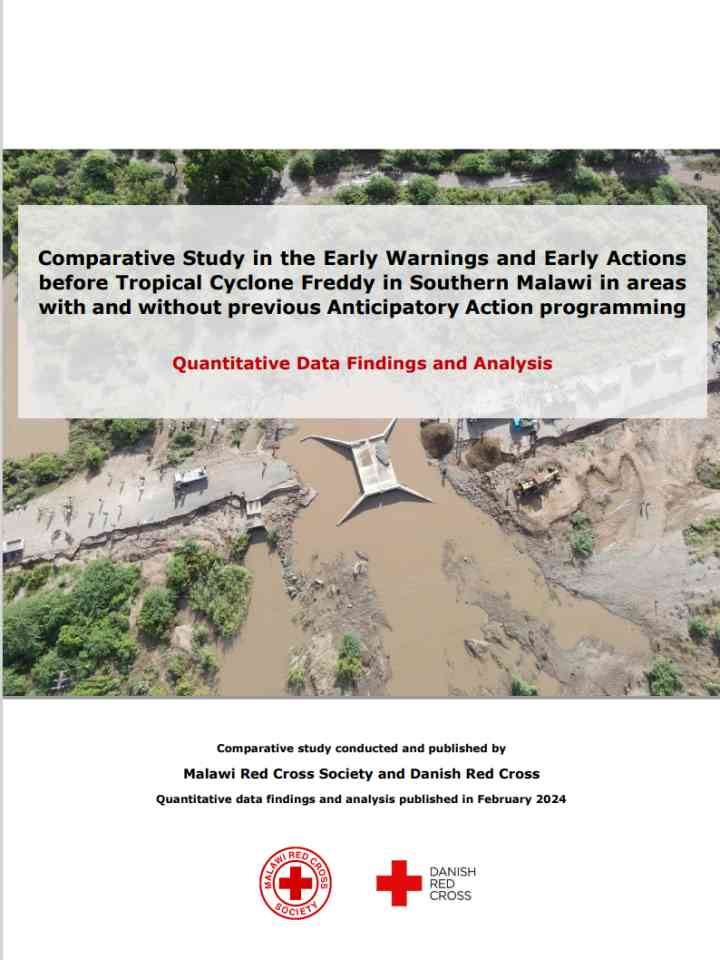Comparative study in the early warnings and early actions before tropical Cyclone Freddy in Southern Malawi in areas with and without previous anticipatory action programming quantitative data findings and analysis
This study assesses the impact of Anticipatory Action (AA) programming on community responses to Tropical Cyclone Freddy in Southern Malawi. Conducted in districts with and without previous AA training, the study found that communities engaged in AA programming were nearly 20% more likely to receive, trust, and act on early warnings. Despite this, many individuals in all areas reported failing to take early actions due to resource constraints and a lack of knowledge about necessary steps. Notably, older women and people with disabilities faced additional barriers, underscoring the need for more inclusive disaster preparedness strategies. The study suggests that while AA programming increases early warning effectiveness, more focus is required on facilitating actual protective actions among vulnerable populations.
To enhance disaster preparedness in Malawi, it is crucial to strengthen Anticipatory Action programming by investing in community training and resources to ensure that residents not only receive early warnings but also understand how to act on them. This includes developing localized resources that cater to diverse community needs, particularly for marginalized groups such as the elderly and those with disabilities. Strengthening partnerships among local organizations and integrating gender considerations into disaster response strategies will also improve accessibility and effectiveness. Finally, ongoing evaluations and adaptations of these programs based on community feedback are essential to ensure they meet the evolving challenges posed by climate-related disasters.
Explore further
